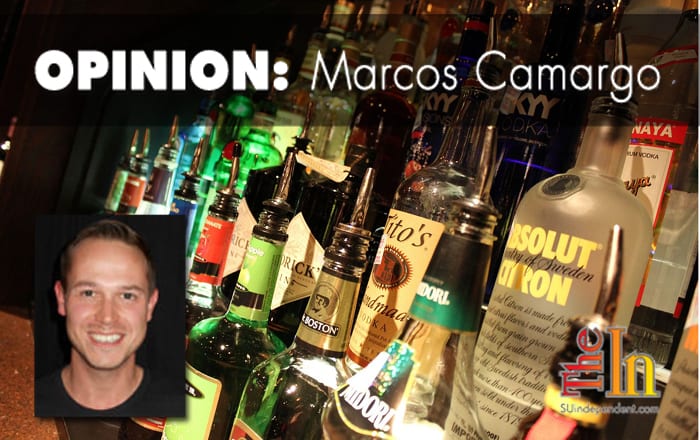
by Marcos Camargo
It’s déjà vu again all right, all over again. For the third consecutive year, legislators are considering a bill (HB339) that would repeal Utah’s so called ‘Zion curtain’ law. The law requires all restaurants opened after 2010 to install a visual barrier (curtain) between alcoholic drink preparation areas and customers. The curtain, intended to separate alcohol culture from children, continues to be a hot topic in a state that prides itself as both business friendly and religiously conservative.
It’s no secret that Utah holds a reputation as the hardest place to get a drink in America. More than 80 years after the end of prohibition (Utah having cast the last necessary 36th vote to repeal the Eighteenth Amendment), the Beehive State still keeps a tight grip on alcohol distribution.
The state monopoly on liquor sales generates millions of dollars in revenue. This money funds education and other important public projects. But unlike the other 18 liquor control states, Utah has made a habit of routinely tightening the law, even to the detriment of local business. Such is the case with the Zion curtain.
Although the law shows good intent on the part of its supporters, it amounts to bad policy and poses a real threat to long-term economic growth in a state funded largely by tourism.
A popular souvenir shot glass reads: “Eat, Drink and be Merry, for Tomorrow You Might be in Utah!”
A comical observation, unless you’re one of the many restaurant owners forced to tangle with the bureaucratic beast known as the Utah Department of Alcoholic Beverage Control and its multiple statutory tentacles.
Out-of-towners looking for a drink find a set of strange rules that do little to prevent underage consumption.
Part of the bar experience lies in presentation, but Utah bartenders are forced to hide their skills behind the frosted windows of the Zion curtain. Some customers question whether they may be paying for premium spirits but receiving well drinks instead. Others are simply confused and frustrated by what they see as morality run amok.
This legislative overkill also drives away both corporate and independent restaurateurs irritated by the red tape. No serious chef sees Utah as a prime location to open up shop, leaving patrons with limited or subpar culinary selections. The curtain is off-putting to chain establishments as well because these businesses are forced to alter pre-designed restaurant layouts at high cost. This undue burden has prompted the Utah Restaurant Association to raise the most vocal opposition to the law.
It’s not just a small group of business owners who want repeal. A recent poll conducted by Dan Jones & Associates reveals that two-thirds of Utahns support eliminating the Zion curtain. Even among the most active Utah Mormons, support for repeal is overwhelming.
However, LDS leadership has yet to get on board. The curtain was put in place as a compromise with the Church when lawmakers got rid of mandatory private club licenses in 2009. Despite widespread support, the LDS Church stands by a statement issued during last year’s legislative session: “Alcohol policy in Utah is closely tied to the moral climate of the state and legislation should not enable, promote or contribute to an alcohol culture.”
Local values should be respected in regards to public policy. But that doesn’t mean change shouldn’t take place when public support is behind it. A solid majority of Utahns–both Mormon and non-Mormon–see the economic benefits of repealing ineffective liquor laws. Passage of HB339 would be a beneficial change.
Marcos Camargo grew up in the rural heartland of Oregon. In 2003 he moved to Utah to find his place in the world and fell in love with the deserts of America’s arid country. An avid student of history and politics, he has a great interest in Western and Native American history and culture. He spends his free time exploring the wilderness of the Southwest.



